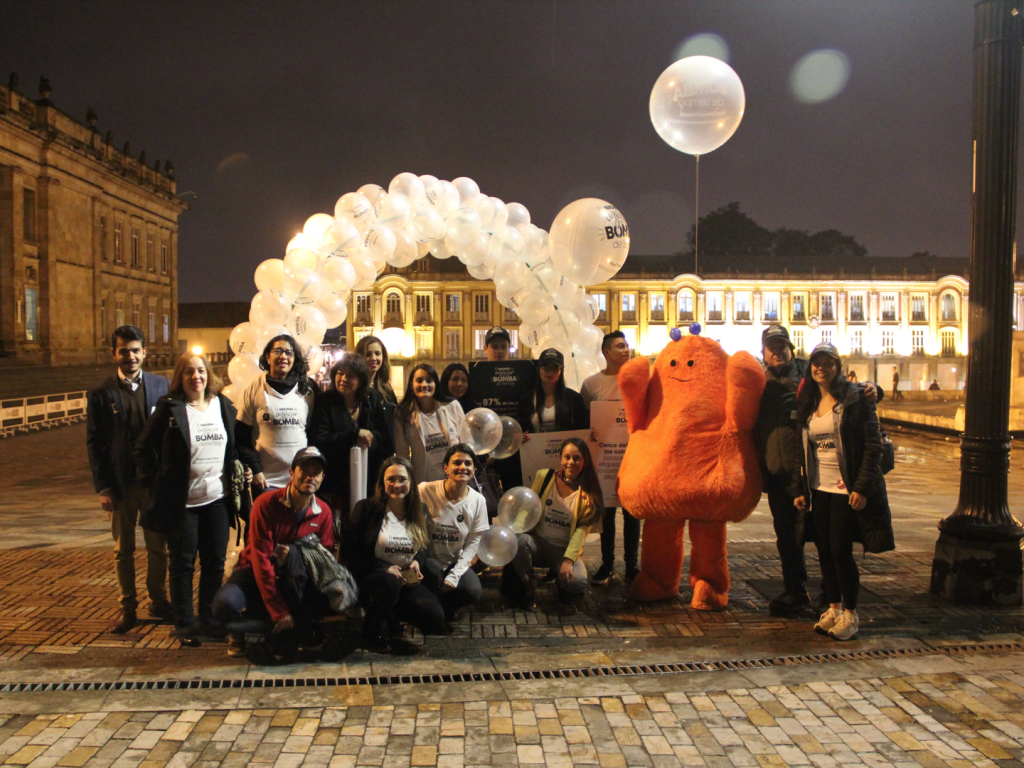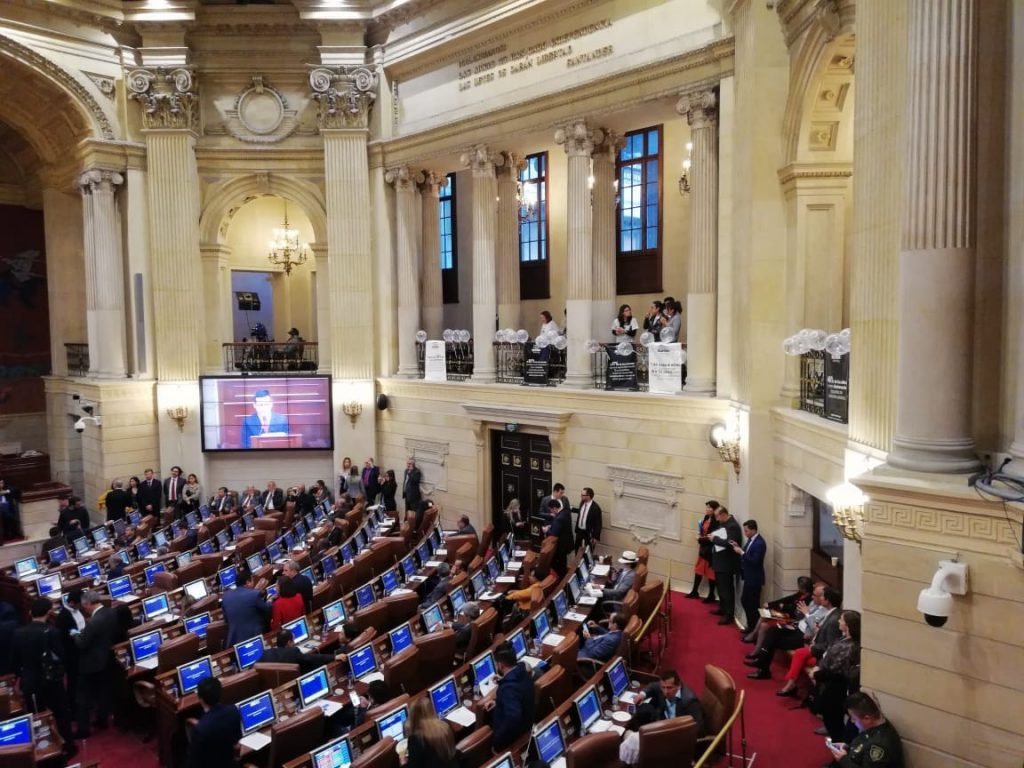Over half of Colombia’s population of nearly 50 million is obese or overweight.[1] Over a quarter of the country’s children are obese. One of the main causes of this growing problem is the availability and consumption of cheap, unhealthy foods and sugary drinks.
With the support of Vital Strategies and other global allies, several organizations in Colombia are working to implement policies and programs that will help make healthier choices, the easier choices for consumers to make. One way to do this is to add warning labels to the front of packages of food and drinks. This is a model that has been recently adopted in Chile, Peru and Uruguay.
Just as Vital Strategies and our partners have fought the tobacco industry through building public awareness, we work with partners to build awareness around the sugar, fat and salt content of commonly purchased foods. When people are aware, evidence shows that they are more willing to support legislation that limits marketing of those products or includes higher taxes on the products.

Members from different civil society organizations like Red PaPaz, FIAN Colombia, Educar Consumidores, among others gather at Congress in Bogotá advocating for front of package labeling
On July 25, 2017, with the support of Vital Strategies and other organizations, the “junk food law” was presented to Colombia’s Congress by Educar Consumidores, a civil society organization. The bill proposed the enforcement of including labels on the front of ultra-processed food products and created restrictions on the marketing and advertisement of junk food directed towards kids.
To support the law, in October 2017, Vital Strategies and our partners launched a mass media campaign entitled “Don’t Eat More Lies And Don’t Serve Them To Your Kids” (also known as “No comas más mentiras ni se las des a tus hijos” in Spanish). The campaign called for restrictions on the marketing of junk food towards children.

Members from different civil society organizations like Red PaPaz, FIAN Colombia, Educar Consumidores, among others gather at Congress in Bogotá advocating for front of package labeling
One public service announcement (PSA) that was a part of the campaign was censored by the consortium of private channels, which approves all content for the major TV networks. The PSA in question was launched by Red PaPaz, an advocacy organization, with Vital Strategies’ support. The PSA showed Colombian children watching cartoons advertising processed foods on television while they mindlessly eat junk food. The food turns into sugar as the children eat it.
Industry interference in Colombia is common and has drastically slowed down the progress of obesity prevention policies and programs. With strong push back from food and beverage companies, the court banned the PSA from airing on national television.
Red PaPaz and its partners, FIAN, Dejusticia and Educar Consumidores took legal action against the censorship of the PSA.
While they waited for court decisions and despite industry pushback, health advocates and organizations continued to move forward, advocating for the “junk food law.”

Member of civil society organizations and international organizations gather at Congress with balloons filled with sugar to advocate for the Junk Food Law.
Different civil society organizations organized a visit to Colombia’s Congress to ask for the ban of PSA to be reversed and to advocate for the “junk food law.” Balloons filled with sugar with the message “sugar is a time bomb” were delivered to parliamentarians on the day the bill was scheduled for debate.
While the “junk food law” was deformed entirely, after a battle of almost a year, the censorship was overruled, and the PSA was allowed to run on national channels.
While comprehensive legislation has not yet been passed, Colombia has made tremendous progress on shining a light on the growing obesity problem, in large part through its mass media campaigns.
And, Vital Strategies continues to support Colombia’s obesity prevention policy. In November, Vital Strategies supported a new mass media campaign to further push for labels on food packing that warn people of high sugar, high sodium and saturated fats in ultra-processed foods.
[1] National Nutrition Survey, Encuesta Nacional de Situación Nutricional (ENSIN) 2015